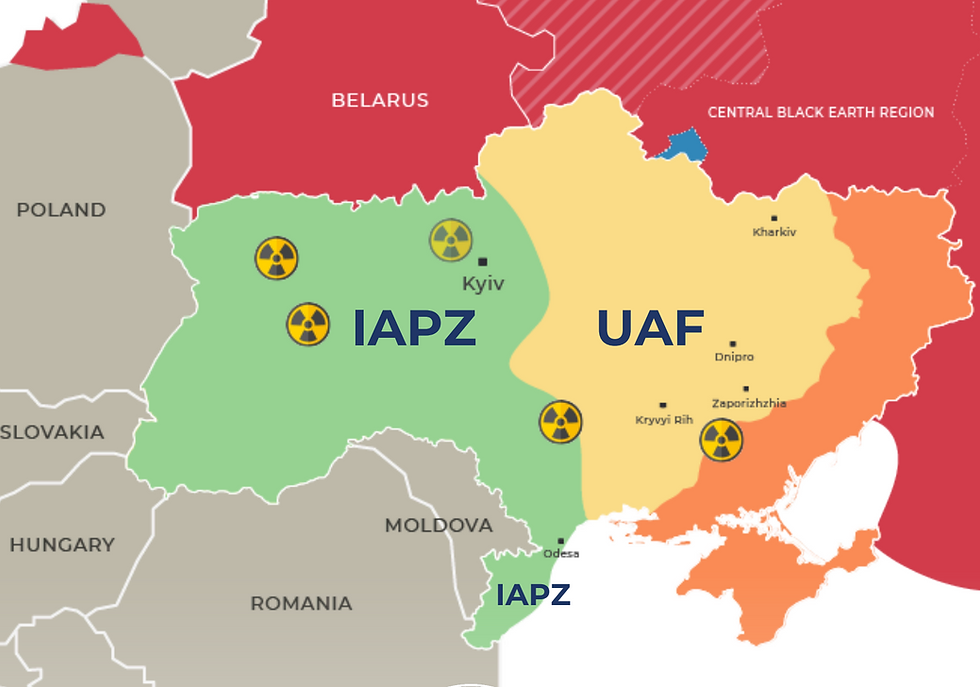Life and death in Chernihiv
- Jan 20, 2024
- 4 min read
By Maryna Balamut
Caught me early in my war hometown of Chernihiv. I won’t say what The war was unexpected for me. I knew there would be a war; everything pointed to it. I had a bag packed at home with essentials and documents. I also had a clear plan of action if the war started, which crumbled within the first two hours. In the morning, explosions and endless sirens woke everyone in my city, and by noon, the bridges leading out of the city were blown up. My city was now under siege. Days began in my life that I had hoped never to experience, but that I would never forget.
At first, fear overwhelms you — fear for your life, the lives of friends, fear from the quantity and power of the weaponry raining down on your city, from the cruelty that marks the beginning of this war. We live in bomb shelters; there’s no other way. The temperature is kept at +3 degrees Celsius; we sleep on pallets on the floor, all together—adults, children, pets—because everyone needs saving. Every morning, you step outside, run home to quickly prepare something to eat for yourself, for the defense, for the soldiers. On the way, you witness the destruction of your beautiful city that you painstakingly rebuilt over the years. You see new ruined buildings, shattered cobblestones, broken trees, and fences twisted into patterns by the force of explosive waves—all results of nightly bombardments.
With a pounding heart, you return to your street, unsure if your house still stands. You exhale with relief; it’s still standing, which means you’ll have food today. In the midst of this horror, you constantly read the news, waiting for some reaction and assistance from the authorities. But every day, there’s nothing but the standard «Chernihiv holds the defense.» No words about the price at which this defense is achieved. No words about the enormous number of dead and wounded. No words about hospitals in basements, the lack of food, medicine, light, and fuel. About maternity cases unable to reach the hospital, about cesarean sections performed in basements because the maternity hospital no longer has windows. It feels like you’ve been abandoned, forgotten, and left alone with the enemy.
Then news starts coming in from the occupied outskirts, about terrible looting, women raped to death, adults and children mutilated. About buses of volunteers attempting to evacuate large families, children, and women being shot. I still remember those charred black specters by the roadside with burnt-out windows; I saw them as I left Chernihiv. And in the midst of all this nightmare, you see a tremendous outpouring of human kindness, support, and mutual aid. One point, you get tired of being afraid; ome get tired of the darkness an you cold. You start acting, and it saves your life.
Most people tried to help in some way. Those who could help in hospitals (it didn’t matter if they had an education),there was a severe shortage of medical personnel. Someone cooked food, bakeries worked around the clock, even under fire. Someone tried to make bomb shelters more comfortable. I remember that about a week or a half later, we had new mattresses in bomb shelters, a local businessman who had a manufacturing factory in the city provided mattresses. The most cheerful were the military, every time you brought them food, warm socks, clothes or something, they smiled and said "Don't worry, we won't surrender the city, we will hold out" It took faith. Although the Ukrainian block post, which stood outside the city, moved closer to the center every day.
I am so proud of my fellow citizens, of the people I lived with but didn’t realize how amazing they were—maybe they didn’t know it themselves. That’s our problem; Ukrainians are very united and friendly when we’re in trouble and terribly divided when everything is fine
I want to express immense gratitude to all the kind people who were with me throughout this time. During the war, I met so many good people, more than I had met in my entire life. Their names will be known to my children and my children’s children. I was lucky to meet them, so if there’s a limit to luck, I feel like I’ve used it up. I remember my first warm night outside Chernihiv; I sat on the edge of a bed with clean sheets in the warm house of Mrs. Natalia, who took us in (complete strangers left without a place to sleep in the field) and couldn’t believe that I was about to lie down undressed to sleep in a clean, warm bed. I was absolutely happy then. After such moments, you realize how little a person needs for happiness. You start looking at life differently and understand that the former you is gone forever. No matter how long you live, you will repay that debt to the good people who saved your life. That’s how I became a volunteer





